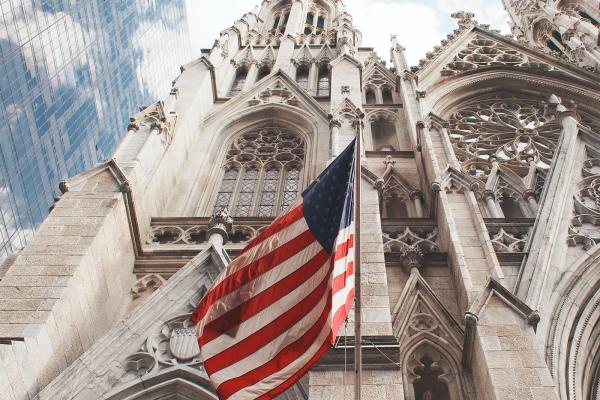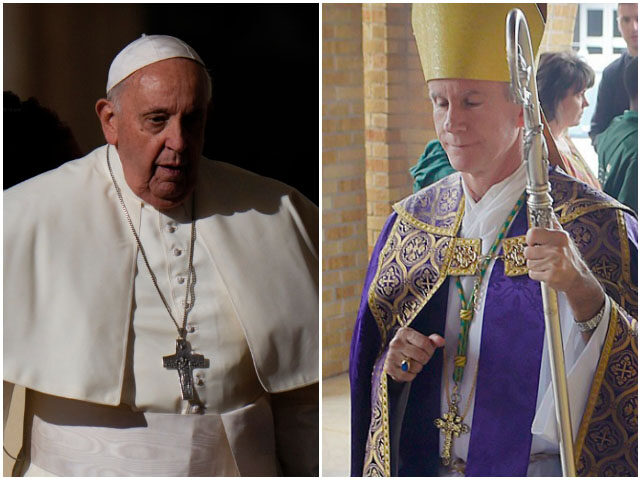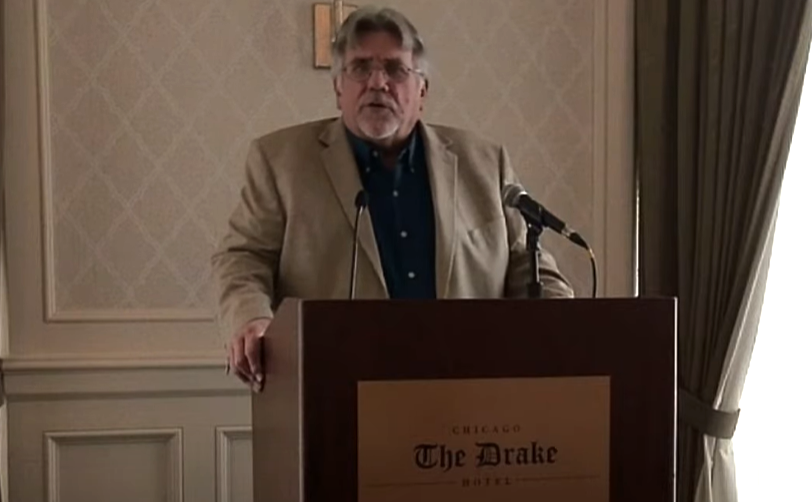By Chris Sparks, Marian Fathers of the Immaculate Conception, Nov. 9, 2022
Put no trust in princes, in children of Adam powerless to save. Who breathing his last, returns to the earth; that day all his planning comes to nothing. (Ps 146:3-4)
In a year like no other, we’ve been enduring a campaign season and an election like no other.
The campaign season has concluded. The election has occurred. The days ahead are uniquely unpredictable. But no matter who wins or loses, some things will not change. No matter the outcome, we do know a few things for certain:
1. We do know that God will still be God on the day after the election.
2. We do know that the prayer “Jesus, I trust in You” will be as true and necessary as ever, and that our sufferings should be offered to God to cooperate in the salvation of the world.
3. We do know that Christians will still be called to love our neighbors on the day after the election, and that we will still need to be characterized by the fruits of the Holy Spirit, by “love, joy, peace, patience, kindness, generosity, faithfulness, gentleness, self-control” (Gal 5:22-23).
4. We know that the law of love of God and neighbor in imitation of Jesus and all the saints and angels, especially of Mary and Joseph, will remain our law as Christians.
5. We know for certain that no matter who wins or loses, the Beatitudes will continue to be as binding as ever on our conduct and our attitudes toward one another (see Mt 5:1-10).
6. We know that we are saved by Jesus Christ, not by a politician, a party platform, or an election result.
7. We know that faith, hope, and love remain, and the greatest of these is love (see 1 Cor13:13).
It’s easy to forget these truths in the midst of the seemingly endless controversies of American politics.
It’s easy to fall to the temptation to believe that with one heroic struggle, we can manage to end the reign of evil on earth and inaugurate the reign of all that is good.
It’s easy to imagine that each election, each vote, each Supreme Court ruling is the ultimate expression of goodness or evil.
And yet, God willing, there will be another election, another vote, another Supreme Court ruling. No one generation has ever made a full and final decision for good or evil. That choice must be made in each and every generation, in each and every human heart, and reaffirmed from moment to moment. No politician, no political system, and no election will complete that struggle, but only Jesus Christ at His Second Coming.
Divine Mercy is the limit on evil, as St. John Paul II taught, not our own efforts or earthly solutions.
Nation, Community, and Soul
Our choice for the truth, for love, for fidelity matters immensely because that will help determine the destiny of our soul. But whether or not our labors bear a rich harvest on this earth is ultimately in God’s hands.
“I am not called to be successful. I am called to be faithful,” said St. Teresa of Calcutta.
That’s true of all of us, especially when it comes to politics, especially in a democratic republic. Our civic responsibilities include voting, and that’s an important action, one we should take seriously. We should study the issues, study the Church’s social teaching, look to the bishops for moral guidance, listen to informed commentary on the issues and candidates, and then vote according to our well-formed conscience.
But that’s just the beginning of our participation. Our single vote is almost never going to be the deciding factor in an election, and important though that vote is for the state of our soul, it’s only one of the ways we make a difference in our communities.
Civic participation includes things like being informed about what’s going on in the world, studying the Church’s teaching on faith and morals, and then looking at everything with mercy’s gaze, through the eyes of Jesus. Civic participation includes volunteering. It includes being a truthful, moral person, and expecting the people around us to be the same. It includes loving our families and neighbors, maintaining healthy relationships, and giving and receiving time, care, and good will.
Civic participation includes not just opposing our ideological adversaries, but also standing up to our friends when they are wrong. We Catholics have a special call to prophetic witness to the Gospel by challenging our preferred party, politician, or activist organization whenever they violate standards of truth, goodness, or patriotism. It includes being faithful, even if that means we’re not successful in a visible, worldly way. The devil often offers power and wealth in exchange for our soul. He has always loved to make that offer. He made that offer to Jesus Himself. Our models for political participation ought to be people like St. Thomas More and St. Louis IX, not Machiavelli, Mussolini, or Marx.
That City on a Hill
We are called to be faithful, not successful — faithful as Mother Teresa was faithful, and so successful as Mother Teresa was successful. She did not always or even often get her own way, but she got God’s way.
We are called to be light to the nations, salt of the earth, a people set apart, a city on a hill. We are called to be Catholic Christians first and foremost, servants and brothers of God Almighty before we are partisans or citizens. We are called to be the sort of people who bear all things, believe all things, hope all things, and endure all things because that is what love does (see 1 Cor 13:7).
We are called to prefer peace to violence, and love to hate, and trust to fear. Indeed, fear of the Lord is the beginning of wisdom, not fear of the devil, or of the other party, or of the person we didn’t want to see win.
We have to remember that Christians are required by Jesus to love our enemies (see Mt 5:43-48); to pray for those brothers and sisters whom we oppose, not to desire their destruction.
So after this election, our fundamental orientation to Jesus Christ should be unchanged. Our fundamental attitude toward our neighbors should still be one of generous love. We still have the obligation to love our country, honor the public authorities, and to speak the truth as best we understand it, in obedience to the Church and to our well-formed conscience.
Those Choices Between Elections
After an election, we have to keep in mind that our duties remain, as do our rights. We need to work to ensure that laws are just, that people are treated according to their intrinsic dignity, and that our society is just and merciful.
We need to know that in a country where the power to govern resides with the people, the choices we make between elections can be just as important as those we make during an election.
We have an obligation to seek our news from sources that tell the truth. We have an obligation to make sure we speak and share the truth. We have an obligation to always remember and respect the dignity of the other side because no matter what, they are our brethren, also made in the image and likeness of God, also having intrinsic dignity, and also beloved by Jesus.
In light of all of this, here are a few concrete recommendations for the days ahead.
1. Trust in Jesus to save us all, not in politicians, earthly power, or wealth. Do not make idols of earthly realities.
2. If you haven’t already made it a habit, start praying a daily Rosary for peace in the world, in obedience to Our Lady of Fatima. The sort of peace she will bring is the peace of a rightly ordered society, of pure hearts and true Christian love.
3. Pray for your enemies! Forgive them their trespasses, because God will not forgive you if you don’t (see Catechism, 2838-2845). The Divine Mercy Chaplet is an especially good prayer to offer for your enemies, as well as for those with whom you merely disagree. The more wrong — or even evil — their beliefs, policies, actions, or statements are, the more urgently you should be praying for them!
4. Study the truth. You can’t stand for truth and promote the common good if you haven’t properly informed your conscience. Prioritize reading Scripture and the Catechism. Other excellent sources include the papal social encyclicals, the Compendium of Catholic Social Teaching, and the Diary of Saint Maria Faustina Kowalska.
5. December 8 is the Solemnity of the Immaculate Conception. Under this title, Our Lady is the Patroness both of the Marian Fathers of the Immaculate Conception and of the United States of America. Ask her for help for our country, and for every need and intention. Invite her into your home through religious art, praying the Rosary as a family, Marian consecration, or other approved forms of devotion. Make the First Saturdays of reparation.
No matter what has happened, is happening, or will happen, remember our slogan: Jesus, I trust in You!
Mary, Immaculate Conception and Mother of Mercy, pray for us!
Saint Joseph, Universal Patron of the Church and Terror of Demons, pray for us!
Saint Faustina, Secretary and Apostle of Divine Mercy, pray for us!
Saint Stanislaus Papczynski, Founder of the Marian Fathers, pray for us!
And may God bless the United States of America.







